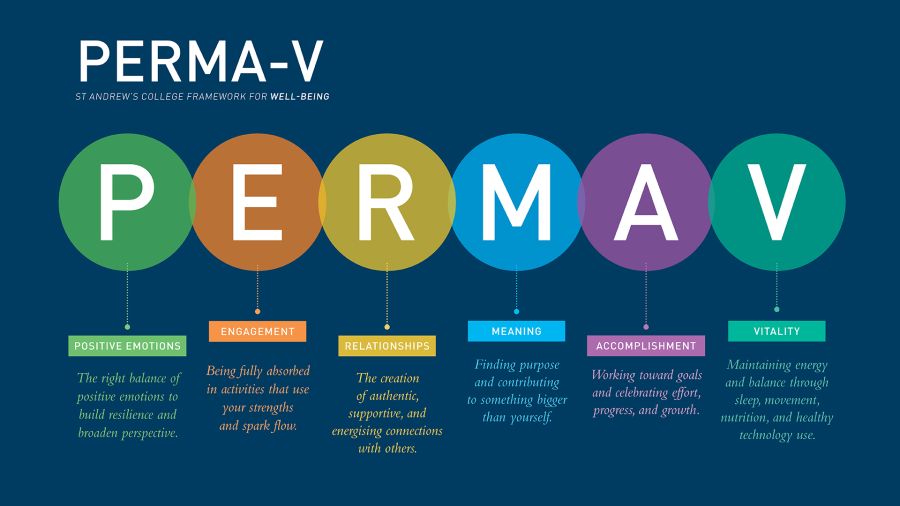On Adolescents and Sleep
12 July 2025
Written by Head of Well-being, Kerry Larby
It’s that time of year when students are focused on achieving their academic goals as they prepare for end-of-year examinations. One of the most critical, and often overlooked, factors in supporting their success during this period is ensuring they get enough sleep. Sleep is essential for brain function, emotional regulation, and overall well-being. When it comes to human flourishing, few things matter more.
The Science Behind Sleep and Academic Performance
Research consistently shows that adequate sleep is fundamental to academic success. During sleep, the brain consolidates memories, processes information, and restores energy for the day ahead. It plays a key role in learning, memory, and emotional balance. Sleep expert Dr Matt Walker states that teenagers need more sleep than adults (around 8 to 10 hours per night) due to the demands of their rapidly developing brains and bodies. However, research also shows that most adolescents fall short, often getting only 6 to 7 hours, which leads to a sleep debt that can impair cognitive performance.

The Role of Technology in Sleep Disruption
A significant contributor to sleep deprivation among students is the use of technology—especially in the bedroom. Research shows that the blue light emitted by phones, tablets, and computers disrupts the production of melatonin, the hormone that regulates sleep. This interference can make it harder for students to fall asleep and achieve restful, uninterrupted sleep.
To support better sleep habits, it’s important that students avoid using technology at bedtime. Encouraging them to leave devices outside the bedroom or introducing a technology curfew can help eliminate distractions and reduce exposure to harmful blue light.
It’s also worth noting that the most effective revision strategies often happen away from screens. In the lead-up to examinations, students should focus on handwriting study notes, creating mind maps, and using active recall techniques such as cue cards. Research consistently highlights a strong link between handwriting and improved memory retention, deeper cognitive processing, and better understanding of material. By physically writing things down, students are more likely to internalise information and develop a clearer grasp of key concepts.

Dr Matt Walker offers the following tips to help adolescents get the sleep they need to feel focused, calm, and healthy:
Prioritise Sleep
Start with the “why.” Sleep is not a luxury—it’s a foundation for physical health, emotional balance, learning, and memory. Students should aim for 8 to 10 hours per night, and remember that good sleep supports every part of life.Stick to a Consistent Sleep Schedule
Going to bed and waking up at the same time every day, even on weekends, helps train the body’s internal clock. This regularity makes it easier to fall asleep and wake up feeling refreshed.Get Morning Sunlight
Light exposure early in the day, especially natural blue light from the morning sun, helps reset the body’s internal clock. It boosts alertness and sets the rhythm for better sleep later.Build a Bedtime Routine
A relaxing nightly routine—stretching, reading, music, or a warm shower—signals to the brain that sleep is coming soon.Dim the Lights Before Bed
Soft lighting in the evening helps your brain recognise it’s time to wind down and prepares the body for sleep.Avoid Screens Before Sleep
This one is critical. Blue light from screens blocks melatonin and disrupts our circadian rhythm. Plus, screen activities stimulate the brain when it should be winding down. Turn off screens at least an hour before bed, charge devices outside the bedroom, and swap screen time for calming activities.
Keep it Cool
A cool bedroom (around 18°C) supports the natural drop in body temperature that helps you fall asleep. Avoid heavy blankets or stuffy rooms.Cut Back on Caffeine and Energy Drinks
Caffeine can linger in your system for hours. That afternoon energy drink or fizzy soda may still be affecting your brain at bedtime. Avoid caffeine after lunchtime.Don’t Lie Awake in Bed
If you can’t fall asleep after 20–30 minutes, get up and do something relaxing in dim light. Return to bed when sleepy. This helps your brain associate bed with sleep—not stress or frustration.
Sleep isn’t just about rest, it shapes how students feel, think, and connect with others. Even small changes can make a big difference. In the lead-up to end-of-year examinations, it’s vital that our young people understand that sleep provides the foundation for focus, memory, emotional balance, and resilience—all essential for performing well and feeling well.
So tonight, encourage them to take one small step: turn off the screen earlier, dim the lights, or stick to a consistent bedtime. Sleep is one of the most powerful tools they have to support their goals—academic, personal, and emotional. It is important we support them to protect it.
Related Posts


